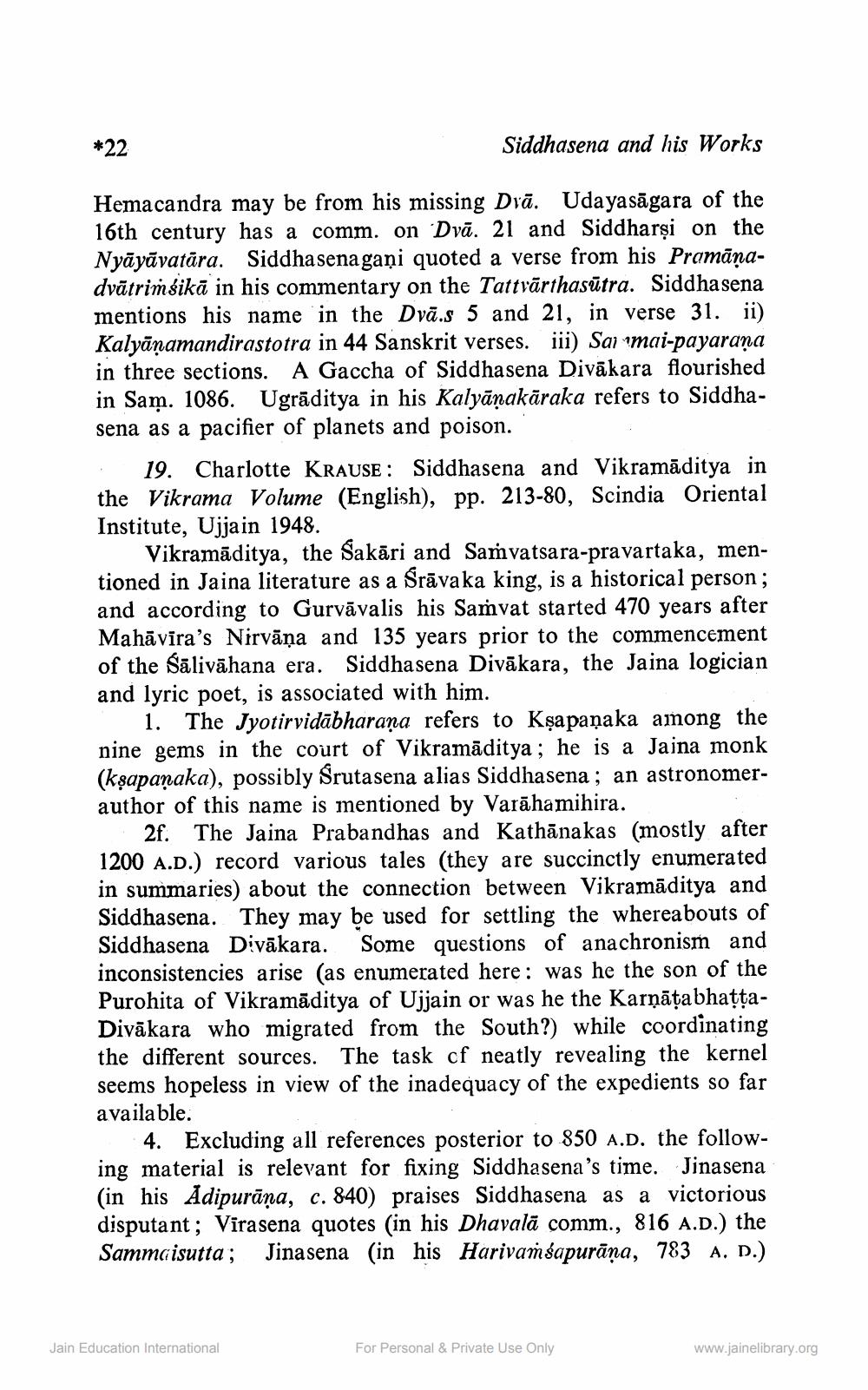________________
*22
Siddhasena and his Works
Hemacandra may be from his missing Drā. Udaya sāgara of the 16th century has a comm. on 'Dvā. 21 and Siddharşi on the Nyāyāvatāra. Siddhasenagaại quoted a verse from his Pramāņadvātrimśikā in his commentary on the Tattvārthasūtra. Siddhasena mentions his name in the Dvā.s 5 and 21, in verse 31. ii) Kalyāṇamandirastotra in 44 Sanskrit verses. iii) Sai mai-payaraņa in three sections. A Gaccha of Siddhasena Divākara flourished in Sam. 1086. Ugrāditya in his Kalyānakāraka refers to Siddhasena as a pacifier of planets and poison.
19. Charlotte KRAUSE: Siddhasena and Vikramāditya in the Vikrama Volume (English), pp. 213-80, Scindia Oriental Institute, Ujjain 1948.
Vikramāditya, the Sakāri and Samvatsara-pravartaka, mentioned in Jaina literature as a Srāvaka king, is a historical person; and according to Gurvāvalis his Samvat started 470 years after Mahāvīra's Nirvāṇa and 135 years prior to the commencement of the Sālivāhana era. Siddhasena Divākara, the Jaina logician and lyric poet, is associated with him.
1. The Jyotirvidābharaṇa refers to Kșapaņaka among the nine gems in the court of Vikramāditya; he is a Jaina monk (kşapaņaka), possibly Srutasena alias Siddhasena ; an astronomerauthor of this name is mentioned by Varāhamihira.
2f. The Jaina Prabandhas and Kathānakas (mostly after 1200 A.D.) record various tales (they are succinctly enumerated in summaries) about the connection between Vikramāditya and Siddhasena. They may be used for settling the whereabouts of Siddhasena Divākara. Some questions of anachronism and inconsistencies arise (as enumerated here: was he the son of the Purohita of Vikramāditya of Ujjain or was he the KarņātabhattaDivākara who migrated from the South?) while coordinating the different sources. The task of neatly revealing the kernel seems hopeless in view of the inadequacy of the expedients so far available.
4. Excluding all references posterior to 850 A.D. the following material is relevant for fixing Siddhasena's time. Jinasena (in his Adipurāņa, c. 840) praises Siddhasena as a victorious disputant; Virasena quotes in his Dhavalā comm., 816 A.D.) the Sammaisutta; Jinasena (in his Harivamsapurāņa, 783 A. D.)
Jain Education International
For Personal & Private Use Only
www.jainelibrary.org




